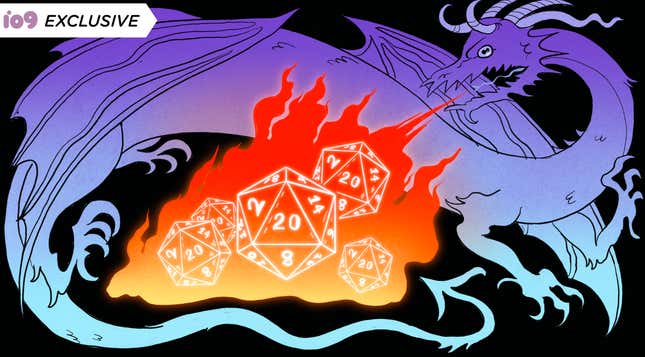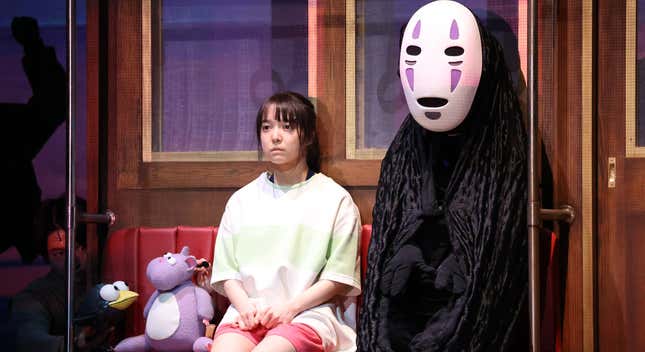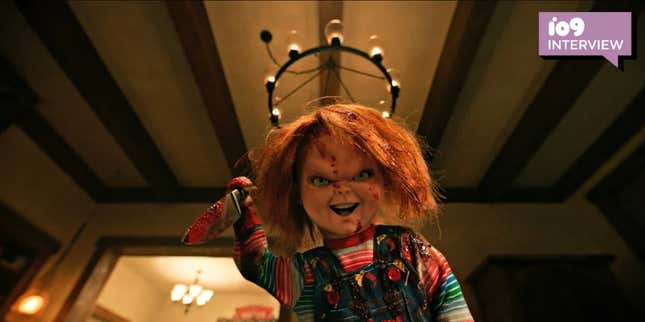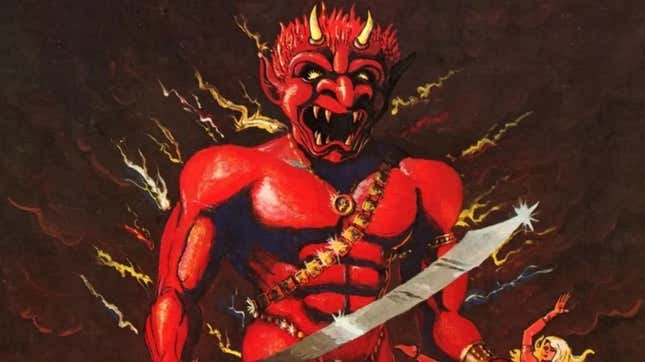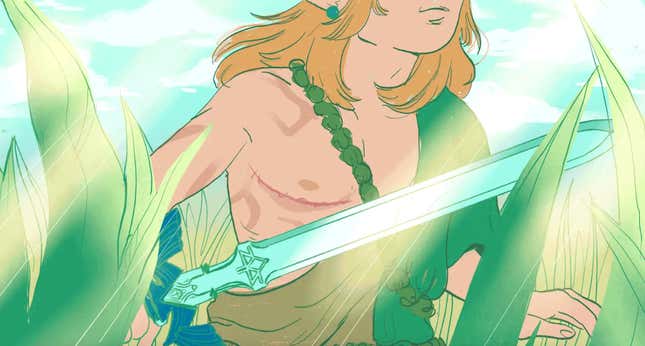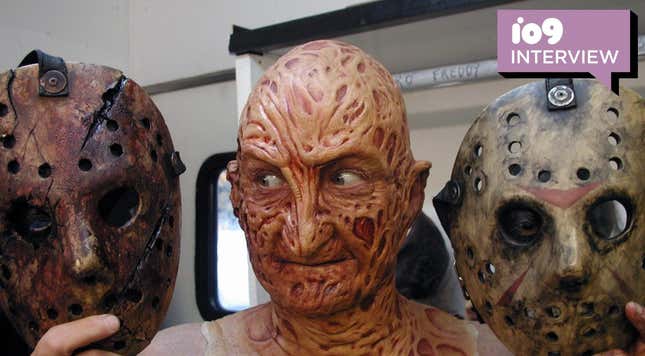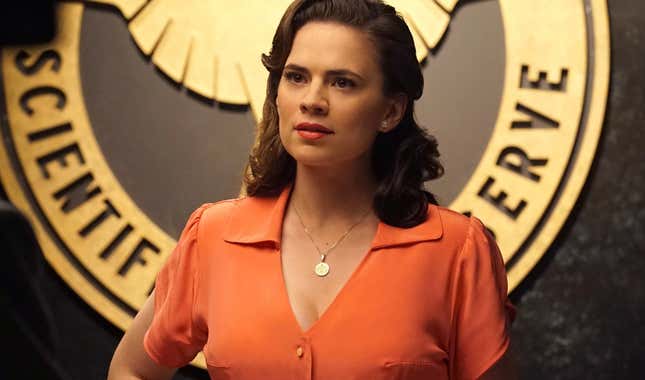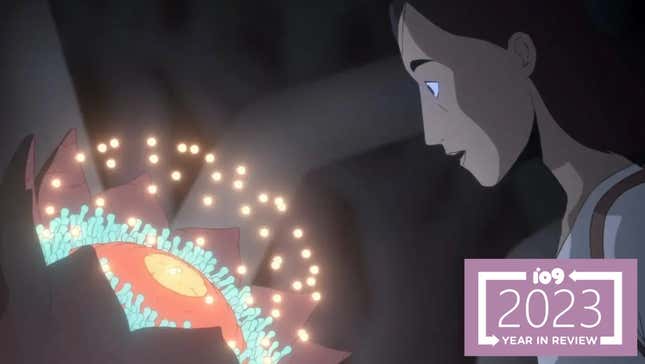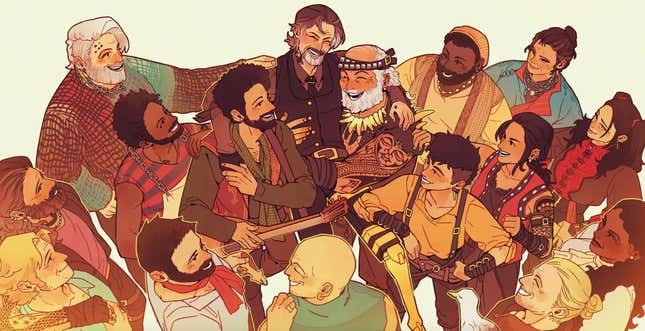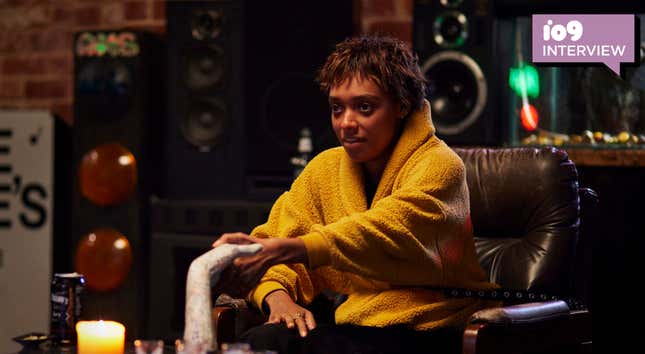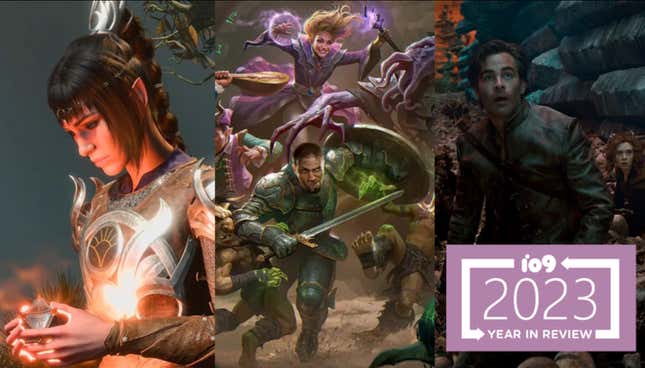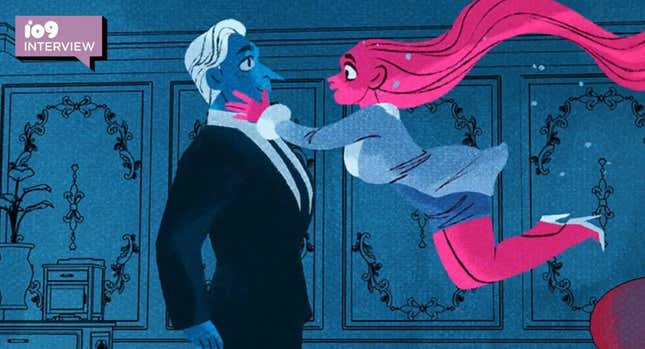By Sabina Graves
Rachel Smythe is now on hiatus, but she had one important stop to make before her break: San Diego Comic-Con, where she was a special guest and was also awarded her second Eisner for her hit Webtoon series Lore Olympus.
For avid readers of the series, the midseason finale for season three—which dropped July 8—was quite the cliffhanger. io9 sat down with Smythe to discuss the wedding between the King and Queen of the Underworld that fans were waiting for, and the surprises that came with it. Hades and Persephone might have made it through the first chapter of their story, but there’s a lot more of their mythology to come.
Sabina Graves, io9: I am very excited where things are going. We have finally had you know, the wedding—last time we talked, you were building up to it and now it’s happened! What is your favorite part about finally reaching this moment between Hades and Persephone?
Smythe: It feels like a real milestone because, as you know, I’ve been working on the story for a very long time. So it was a very rewarding chapter to write. I think in writing the wedding, it’s always really tough because weddings are very personal, right? And everyone’s tastes towards weddings are very different. And so in designing all the clothes—it was really hard, but I think in the end I was like, “I’m going to go with exactly what I want.” And I did that. And it was really fun and rewarding.
io9: What were the style icons or fashions that you looked to as inspiration for Persephone’s dress? I’m in love with it.
Smythe: I basically went for very A-line looks that were from the ‘50s. I looked at Maria’s dress from The Sound of Music from when she gets married, and I kind of sexed it up a little bit, in the sense that most of the dress is very covered, but it’s got like a boob window.
io9: Oh, yeah, we love a boob window.
Smythe: Like conservative, but a little bit of boob, very sophisticated. Lots of little buttons. Yeah. Oh, that’s super fun.
io9: I love that there’s now this shift—we’re getting into this sort of “leaving the nest” story between Persephone and her mother. What can you share about how that is going to influence this next part of the myth that we know?
Smythe: I think in writing this inevitable friction that is coming up, it’s been very rewarding. What I really enjoy about it is—I think some people do see a lot of Demeter’s actions as villainous. And I think she has the added pressure of being a woman. Women get judged much more harshly, particularly in a fictional context. So for me, it’s really interesting to explore how this is going to affect everyone reaching this drama. And then, how it breaks everything apart and how everything comes back together again—really approaching Demeter’s backstory and her trauma but also how that affects her relationship with her daughter and how they can navigate their way out of it. And I think it will be very holistic.
[Read more]

